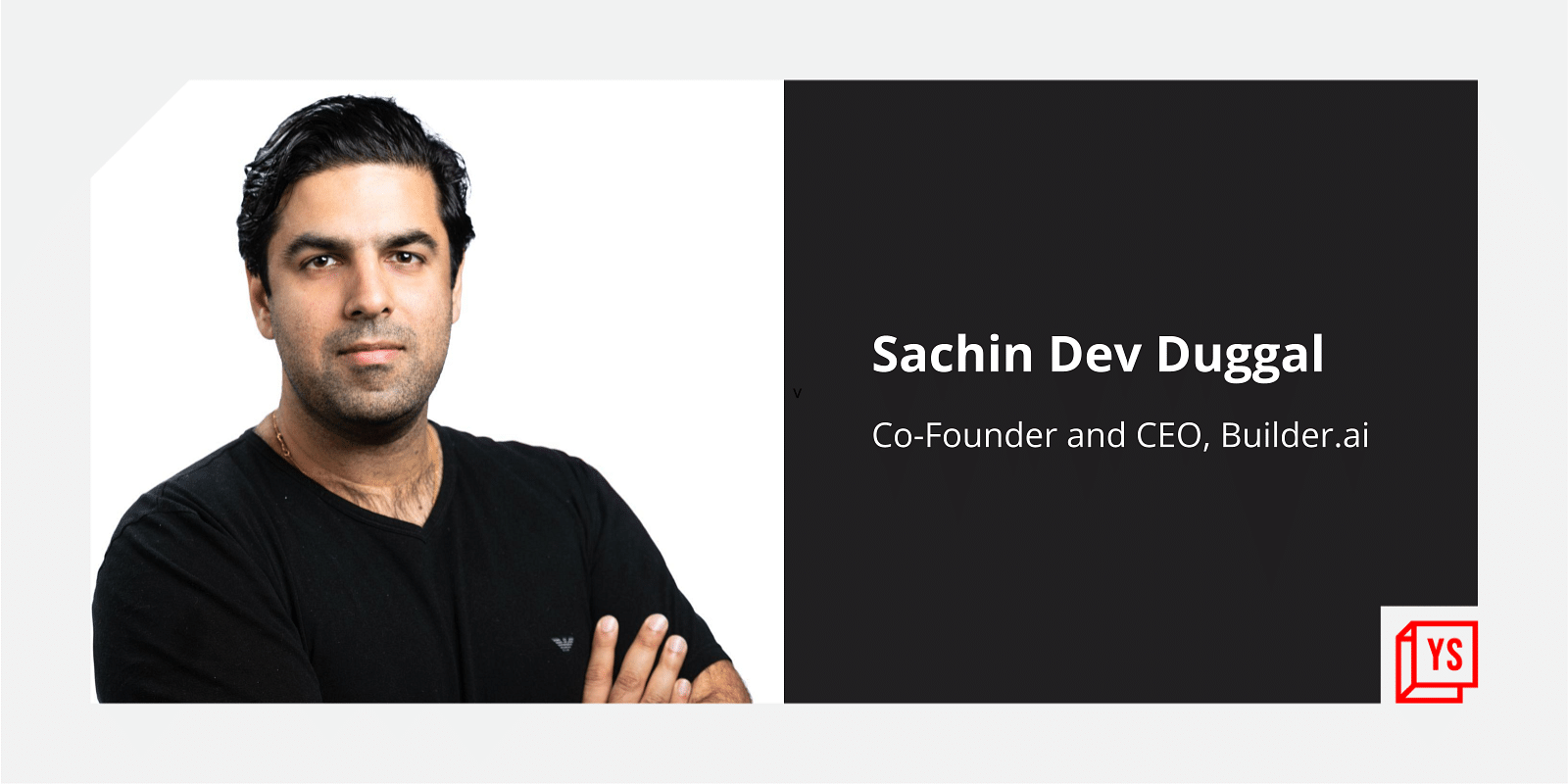Pandemic-led digital acceleration played a crucial part in Los Angeles and London-headquartered Builder.aigrowth. The Artificial Intelligence (AI)-based low-code / no-code app development platform came out of its Beta in November 2019 and saw a straight-up acceleration of business by March-April of 2020.
Owned by parent entity , Builder.ai was launched as a product in 2016 by Sachin and Saurabh Dhoot, both alumni of Imperial College of London. The company has raised $195 million to date with a recent infusion of $100 million for its Series C round led by New York headquartered investment firm, Insight Partners.
A large segment of the company’s customers, nearly 90 percent to be precise, are Small and Medium Businesses (SMBs), especially building apps for customer facing businesses and entrepreneurs building new apps. The rest are enterprise grade customers, which were added over the course of two years.
“We saw a bunch of micro-trends while setting up the company. One was that digital and non-digital worlds will merge and we have seen that happen; and secondly, the demand for developers will outstrip the supply,” Sachin Dev Duggal, CEO of Builder.ai, tells YourStory.
These changes led to an 18x growth in revenue for its flagship product, Builder Studio, since April 2020. The startup also saw positive EBITDA months over the last year, says Sachin, adding that the company is well on its way to reach the $100 million Annual Recurring Revenue (ARR) mark, a milestone for Software-as-a-Service (SaaS) companies.
Growth drivers
Builder.ai platform has a library of features, which businesses can add to their platform readily, improving scalability.
“Nearly 30 percent features on any application come from a basket of 19 categories. This has nearly 85 percent overlap between an SMB and enterprise,” says Sachin. He adds that Builder.ai offers features, which can serve an SMB as well as a business of scale in the same sector, say grocery store and supermarket chains.
Unlike most other SaaS companies, Builder.ai relies on a self-serve model, where the customers first choose a base and then interact with its conversational AI-assistant Natasha, which helps in tagging features and tailoring the software to the customer’s needs.
“Even for a platform like Shopify, nearly 80-85 percent of business comes through consultants who charge multiples of the annual subscription fee. Most customers building tech do not understand software well and have to rely on these project consultants. We are making it as easy as ordering a pizza and are in higher single digits already,” says Sachin.
This is in addition to a marketplace of software developer teams globally. Based on the customers’ needs, Builder.ai manages the work to be done by these developers.
The numbers
The model has helped Builder.ai control churn to less than 5 percent on an annual basis and close sales faster.
Sachin says the company takes an average of 52 days to close a sales deal with enterprise grade clients, as compared to industry norm of nearly nine months.
“For micro and small businesses, we have a 24-month subscription model for the platform, while we keep it a consumption-based model for entrepreneurs and mid-sized companies. Almost all our customers convert to the Builder Care platform, while nearly 90 percent convert to Builder Cloud,” he adds.
Builder Care monitors software and manages bugs, upgrades and updates, while Builder Cloud gives scalable cloud infrastructure including DevOps automation and analytics.
The platform has seen an increase in the number of micro-SME customers after the pandemic as well. These include retail businesses, restaurants, and other business-to-customer offerings. Among mid-sized businesses and entrepreneurs, the demand for marketplace businesses – especially NFT or NFT-linked marketplaces – has gone up, says Sachin.
Builder.ai founder and CEO Sachin Dev Duggal
Enterprise businesses have been largely focused on building apps for employee management, order management, e-learning, etc., he says.
From Average Order Value (AOV) of $18,000 per customer in 2020, Builder.ai is clocking AOV of nearly $40,000 across the board, leaving out enterprise clients.
According to a report by Gartner, the global low-code development technologies market was projected to grow to $13.8 billion, an increase of 22.6 percent over 2020, with SaaS vendors and hyper-automation driving the adoption of these solutions.
India business and expansion
The APAC market, particularly India and Singapore, account for nearly 60 percent revenue share at Builder.ai. The company also plans to expand its business across continental cities in the US, APAC, MENA, and the UK, with the new round of capital raise. Nearly 60 percent of the fresh funds will be dedicated to Research and Development, including AI and automation capabilities, said the company.
The company has also doubled its headcount from 265 in March 2021 to 450 in March 2022, with plans of growing to 1,000 employees over the next 12-18 months, says Sachin. Of the global employee base, nearly 250 are based out of Gurugram in India, a number set to grow by nearly 70 percent over the next year, he adds.









![Read more about the article [World Tuberculosis Day] These 5 startups are developing solutions for faster TB diagnoses](https://blog.digitalsevaa.com/wp-content/uploads/2021/03/yourstory-tuberculosis-300x150.png)
